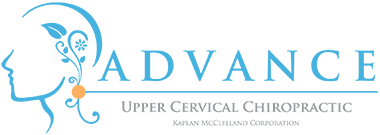Concussion and the Neck (Part 1)

What does it mean to have a concussion?
According to the Cleveland Clinic, “concussion is a mild traumatic brain injury caused by a bump, jolt, or blow to the head.” It is commonly caused by a blow to the head but can also be caused by shaking of the head. This trauma causes the brain to move rapidly inside the skull, and consequently affects how the brain functions. According to CDC estimates, 1.6-4 million sports and recreation concussions occur each year. Another common cause of concussion is a car accident, where there is a sudden acceleration or deceleration of head, often causing a ‘whiplash’ mechanism of injury to the neck. However the concussion occurs, there can be bruising to brain tissue, impairment of nerve cell function, and inflammation in tissues and cells of brain.
How it is diagnosed?
Concussion is usually diagnosed through a neurological exam that tests the following functions: vision, hearing, strength & sensation, balance, coordination, & reflexes.
There is also cognitive testing, including evaluation of memory, concentration, and information recall.
Imaging is also part of a complete diagnosis. A CT scan can look for bleeding or swelling in the skull in the acute (immediate)phase of injury. An MRI scan of the brain can be used to evaluate longer-term complications.
Symptoms of Concussion
The most common symptom of a concussion is a headache. Other common symptoms include nausea, fatigue, cognitive & memory problems, sleep disturbances, mood changes, dizziness, ringing in ears, & neck pain. It is important to note that signs and symptoms of concussion may not appear until hours or days after the injury.
Most people recover in 7-10 days but some have persistent symptoms.
10-20% will last greater than 30 days and become ‘post-concussion syndrome’.
Connection with the Neck
Here is what most medical professionals will overlook: An injury that is strong enough to cause a concussion is also strong enough to injure the neck to some degree. According to Ellis et al. (head trauma rehab 2018), if you have a neck injury with a concussion it will take on average 10 days longer to make a clinical recovery compared to concussions without neck injury. Additionally, it is on average 4x more likely for neck injured concussion patients to experience symptoms beyond 30 days compared to concussions without neck injury.
Again, any head trauma is also a neck trauma. The impact of a head injury will most affect the area of instability (Upper neck). The skull bones are fused together, so the closest articulation that is available to absorb the impact through movement is the Cranio-Cervical Junction (C1 Atlas & C2 Axis vertebra). This area is also known as the Upper Cervical Spine. Misalignment at the Cranio-Cervical Junction will affect how brain heals from concussion. Upper Cervical Chiropractors are the only ones who can properly correct the alignment of the upper neck, thus removing interference, and allowing brain to heal as efficiently and completely as possible. This type of intervention is critical to making a complete recovery after concussion.







